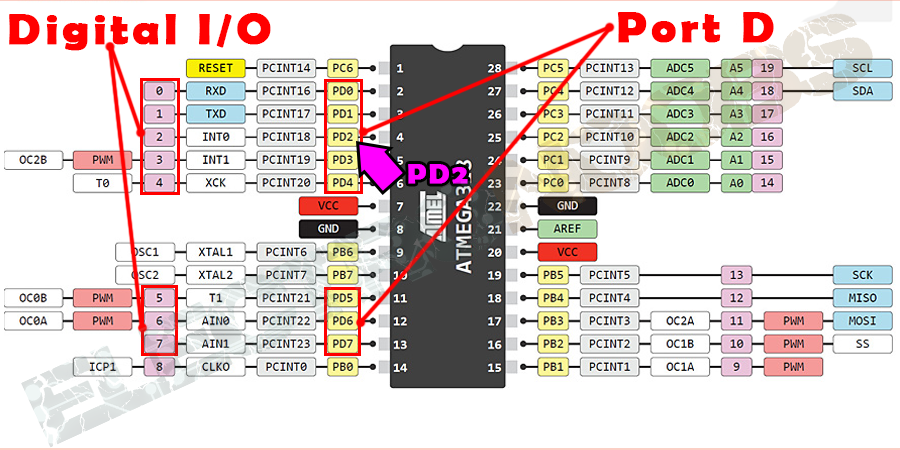
The reason I need to init the timer before its used and then stop it, is because if I init the timer in the zero crossing ISR it takes quite a lot of time (at least if I used Timer1's init code), and this effects when the Timer ISR gets triggered. (Note this output is set to LOW in the zero crossing ISR). In the timer ISR, the output that drives the triac( via an opto + signal conditioning), is set to HIGH. The time period is basically between zero and 10mS. In the zero crossing ISR, the timer needs to be started, as the triac that controls the AC load need to be triggered at a pre-defined time period after the zero crossing. The zero crossing detector is connected to D2 and hence uses Interrupt 0 to call an ISR

The Arduino get a zero crossing pulse every 10ms from a opto isolator connected to the mains via a signal conditioning circuit. The whole project is a remote control ac mains dimmer controller based on various designs on the web. I've tested on a Uno and Nano with the same results Am I using the Timer1 library incorrectly.īTW. My current work around is to set a flag just before setting TCNT1 =0, and in the ISR, if the flag is set, I treat this as a false interrupt caused by the resetting of TCNT1 isResttingTimer=true ĭoes anyone know the correct / best way to do this. Timer1.resume() instead of start(), but as document in the Timer1 source code, setting TCNT1 =0 causes the interrupt handler to get called, on the next tick. The only solution I have found is just to set TCNT1 = 0 and then later call If you replace the stop() command with resume() it works fine, but the timer isn't reset to zero.Īnd I need to keep stopping the timer and starting it again. However in my simple example above, the timerisr doesn't get called. I don't want to call initialize just before I need the timer to start, as I need the timer to start straight away and initialize() runs quite a lot of setup code. I.e I need to be able to init the timer and then start it some time later. TODO: Put your regular (non-ISR) logic here Timer1.attachInterrupt( timerIsr ) // attach the service routine here Timer1.initialize(1000000) // set a timer of length 100000 microseconds (or 0.1 sec - or 10Hz => the led will blink 5 times, 5 cycles of on-and-off, per second)

All three are effective at getting the Arduino's LED to quit blinking.I'm trying to use the Timer1 library ( Arduino Playground - Timer1 )īut the start() function doesn't seem to work #include
Arduino timer1 code#
I've tested all three methods for "turning off the timer." Just comment out the one you prefer in the code below to see it demonstrated. set compare match register for 10 Hz increments TCNT1 = 0 // initialize counter value to 0 TCCR1A = 0 // set entire TCCR1A register to 0 TIMER 1 for interrupt frequency 10 Hz: Can you help somehow, please?ĪttachInterrupt(digitalPinToInterrupt(2), displej, CHANGE) But when I press button fin I want to stop generating interrupts for the program which is increasing the variable time called cas. I am using this program to count and show on the display the number of external interrupts on pin 2 while measuring the time. The problem is I can't stop the timer any way I try.

I wrote some simple code where I am using the timer1 on my Arduino Uno.


 0 kommentar(er)
0 kommentar(er)
